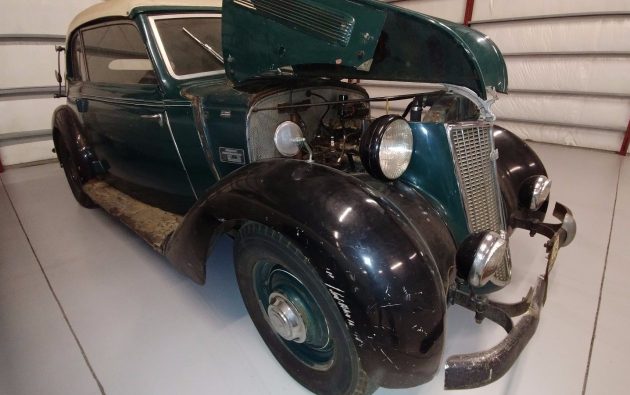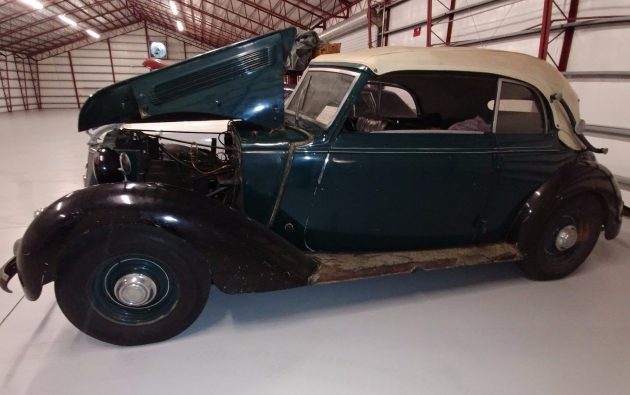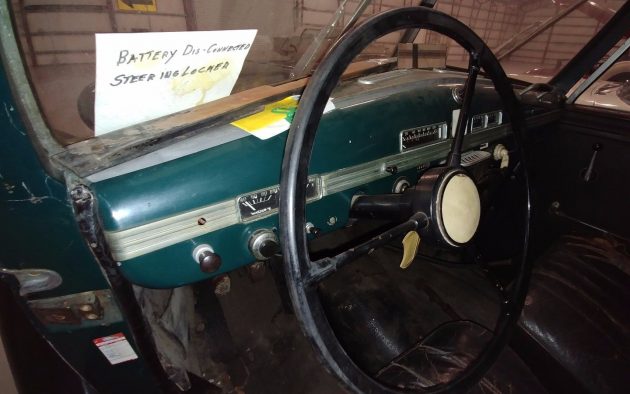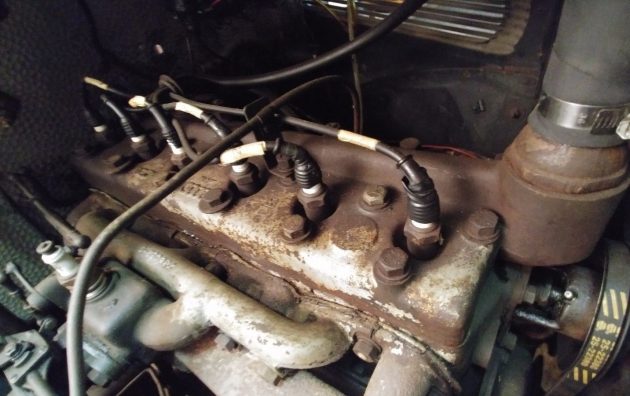For the first time since 1954, this handsome 1939 Wanderer W 23 finds itself for sale. It last ran three years ago, and retains many original parts. Listed here on eBay, the pre-war convertible’s $125,000 “Buy It Now” price should repel Christmas impulse buyers, though a “Best Offer” option suggests a lower number might complete the deal. Thanks to Dominic O. for spotting this unusual European classic located in Archer, Florida.
For reference, this car’s 114 inch wheelbase matches the rather portly 1979 Thunderbird, though the T-bird’s massive overhangs render it much longer overall, 218 inches vs the Wanderer’s 181. So this upscale cabriolet compares more closely with a pre-war Packard that an MG Midget. An older repaint reduces the car’s originality, but has weathered enough to sustain the “survivor” story. Thanks to autogallery.org.ru for some details.
Unlike nations sharing history with the United Kingdom, Germany and other nations’ drivers sit on the left and drive on the right side of the road. The 78 year old leather looks serviceable, but I’d probably set these priceless original seats aside and mount substitutes before embarking on The Great Race.
Wanderer’s 62 HP 2.6 L flat-head inline six was the W 23’s largest in 1939, and also powered some Audi automobiles that year. After World War II, Audi absorbed the remnants of Auto Union, and adopted Auto Union’s four-circle logo. Asking $125k for a car based on a 63-word description denotes a casual seller. That’s nearly $2000 per word! What do you think of this stately pre-war cabriolet?






Todd, I think that leather may be just good enough the use as patterns for the upholstery. Also, I wouldn’t think there are very many parts available for it. That may be an issue if you’re planning on taking it on the Great Race.
I’d like to own this one but, there are other things much higher on the list ahead of it such as health care etc.
Nice car.
Great car. Auto Union’s history is much more complicated. Audi was always since 1930 represented by one of the rings, the others being Horsch, Wanderer, and DKW. All were sold under their own names but were part of Auto Union after the merger. By the 60’s only the DKW brand was left, along with some Auto Union branded cars. VW purchased AU, stopped production of DKW’s due to their reliance on 2 strokes and reactivated the Audi name. Audi did not absorb Auto Union but was part of Auto Union. There is even more to the story with parts of the AU infrastructure caught behind the Iron Curtain and still producing long after the war.
Interesting, impractical for most other than the most devoted collector but still interesting.
The engine appears to have a spark plug screwed into the intake manifold. What’s with that? Is it supposed to be there?
Yeah, you’re right, that is a spark plug-like looking thingy on the intake manifold, but it looks like its got a throttle linkage attached to it too. So, not a spark plug.
Maybe a spare?
Imagine the feeling you’d get after spending 100K + on this, and when you explain to someone what it is they go “oh” and walk away to check out something far more interesting. I like oddballs, too, but this is pretty dull as a car.
I think it’s pretty neat. I rarely bring my cars to shows, so it doesn’t really matter to me if someone says “oh” and walks away. However, I don’t find it $125k of neat. If it were reasonably priced, I would leave the paint as is, do something with the running boards, and get the mechanicals in order. Then drive it regularly. This is the kind of patina I can live with.
– John
I’m probably wrong, but I don’t see this bring profitable after restoring.
Hard to get parts, high price and limited market.
Are these going for $200K plus when restored?
For those who don’t know, Auto Union was the product of Audi, Horch, DKW, and Wanderer merging.